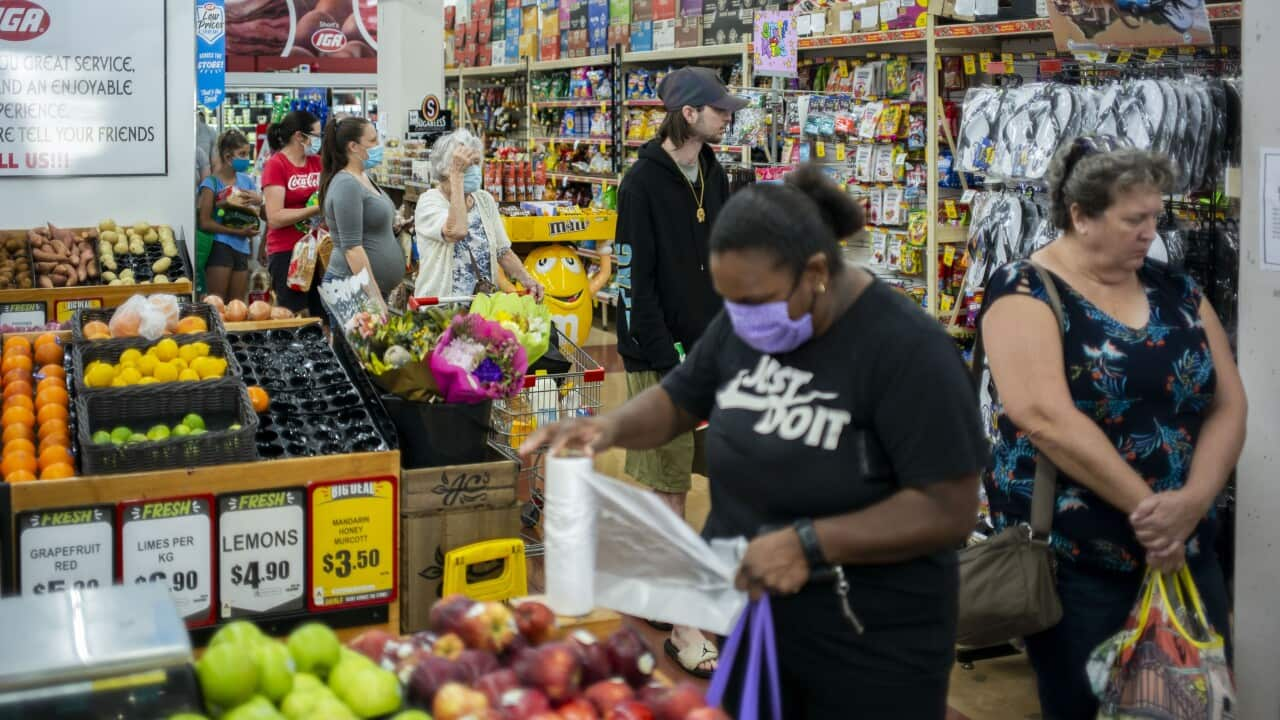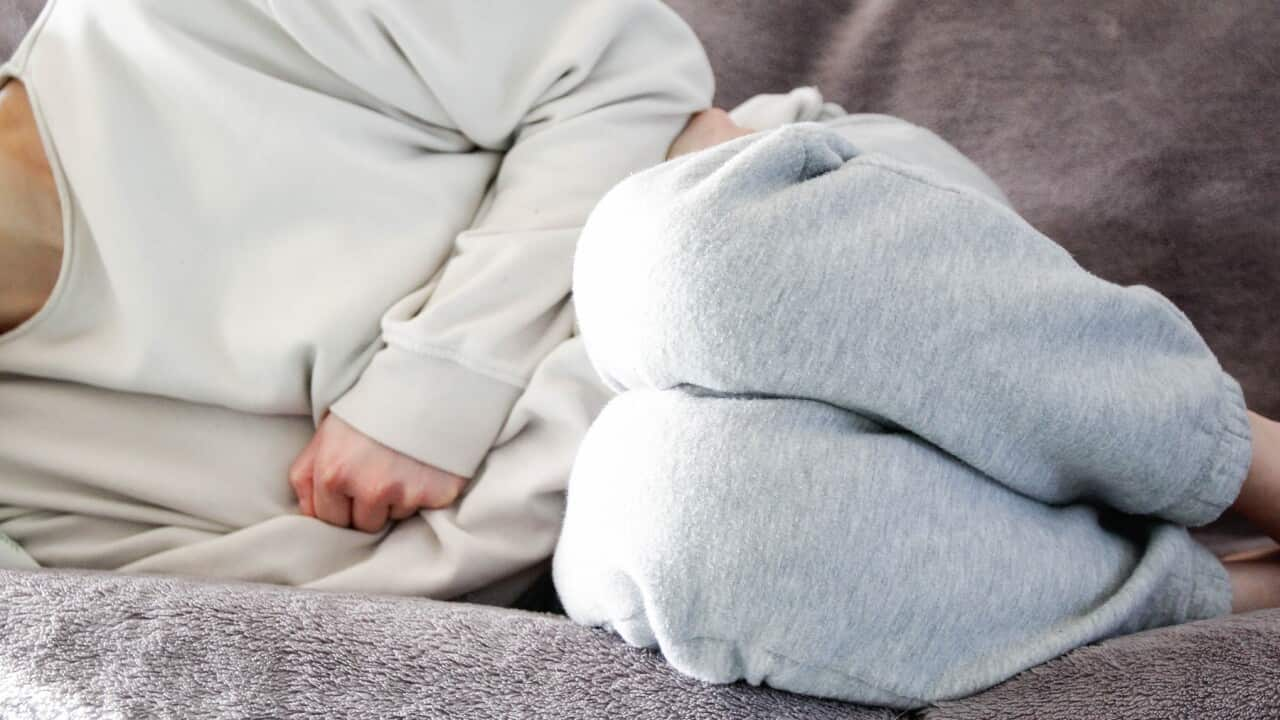TRANSCRIPT
Honor Severs is a 30-year-old content producer, and lives with her partner and two young children in Sydney.
She has recently gone back to work from maternity leave, but says that her family has had to get creative to deal with increasing pressure from the cost of living crisis.
"So one of the most drastic things which I think is the same for quite a lot of young families is the cost of food. You know, we're looking at doing meal plans quite a lot more, and using companies to deliver food as well. They often have a lot of deals on, so that kind of saves us a lot of money. Other things that we've done is we've just cut down on anything that seems indulgent, in terms of like any health and beauty regimes they've been really simplified - you know, I cut my toddler's hair, I get my hair cut at like a local barber, so nothing fancy."
At-home haircuts are far from unusual.
Banking and financial service ING has released its 2023 Sense of Us Report, which has surveyed the spending and saving habits of a sample of over 2,000 Australians aged over 18.
Its findings suggest that, in response to a continuing cost of living crisis, choices like cutting back on grocery shopping and personal spending are fast becoming the new normal.
Eighty-eight per cent of participants say they are spending less on food shopping, while one-in-five say that they save money, like Honor, by cutting hair at home.
Luke Lindsay is a General Manager at Uniting Care Queensland, which operates the National Debt Helpline and Lifeline in the state.
He says that the cost of living crisis is affecting many Australians in different ways.
"Every individual circumstance is so different, and so for some people it is the cost associated with living has gone up and yet their salary and wages have not gone up. For others its been they've had a reduction in employment positions or hours or one parent or carer has lost a job and all of sudden their income has reduced."
Health organisations like Uniting Care are emphasising the importance of budgeting as a way to reduce the impact of rising costs on mental wellbeing.
Mr Lindsay says that their lines have recently been receiving a high volume of calls from those experiencing financial pressures.
"Across the last 12 months, we've really seen an increase in the cost of living pressures impacting both on individuals but also on families. And some of the things that we're regularly seeing and hearing are families that are really struggling to pay their bills, particularly utility bills, particularly buy-now, pay-later, and are really struggling to budget. And the impact that that has on their mental health is, often they have trouble sleeping, they have a loss of appetite, really low mood."
Pressures are causing high levels of distress within relationships, and an alarming rise in reports of alcohol abuse and domestic and family violence.
Nicola Palfrey, Acting Head of Clinical Leadership at national mental health charity Headspace, says the cost of living crisis is also affecting the mental health of younger family members.
"All members of the family are impacted. We've all been children in families and we know that when the adults in our lives are stressed, then that impacts us and our mental health and wellbeing, and whether or not that means you're a five-year-old, or a 15-year-old, even though adults may try to keep that stress to themselves, it definitely leaks through to children's wellbeing, when they see people concerned about or arguing about money, or mum feeling stressed about what you're asking for to get into your lunchbox."
Both Headspace and Uniting Care Queensland offer budgeting advice on their website.
They say that as pressures become normalised, proper budgeting practices are as important for wellbeing as a mental health care routine.
Ms Palfrey says that some basic steps can go a long way to alleviating financial stress.
"There's an acronym BOSS, around budgeting, options, services and support. And what that really means is first of all doing what we sometimes don't like doing, but looking at what we're spending our money on, tracking our spending, and having some processes in place - direct debit - to get those essentials, rent or bond or other ongoing utilities for example, taken out of our pay as soon as we can, but also looking at options, what are the things that you might be entitled to."
For those having problems with debt or shortfalls in income, Mr Lindsay says it is better to act sooner rather than later.
"Our advice is to get in early - early intervention is absolutely the key here. Often what we see is people wait until they're contacted by debt collectors, or they receive emails or letters demanding payment, and then they contact us."
Ms Palfrey says that those experiencing cost of living-related mental health problems should know that support is available.
"If the stress is impacting on your mental health and wellbeing, you can always reach out for support, either through services like Headspace or online through our digital mental health services. Sometimes there can be shame or stigma if they don't feel that they're coping with budgets or anything else, but trying to know that there's always help out there."
Sometimes taking care of your mental health can mean the occasional non-essential purchase with the survey finding Australians are more likely to do this with everyday grocery products, with 29 per cent of participants spending more on coffee.
Honor has also found low-cost ways of taking care of her mental health.
"I do still get my occasional takeaway coffee. On my days off that is something I can spoil myself on. Other than that, the best thing for me is just having some time to myself, going for a run."
With no end to the cost of living crisis in sight, finding small, everyday joys may be the best comfort for many Australian families.
Anyone seeking information or support with debt can contact a financial counsellor through the National Debt Helpline on 1800 007 007.
If you or someone you know needs support, contact Lifeline crisis support on 13 11 14, Suicide Call Back Service on 1300 659 467 and Kids Helpline on 1800 55 1800 (for people aged 5 to 25). More information is available at beyondblue.org.au and lifeline.org.au













